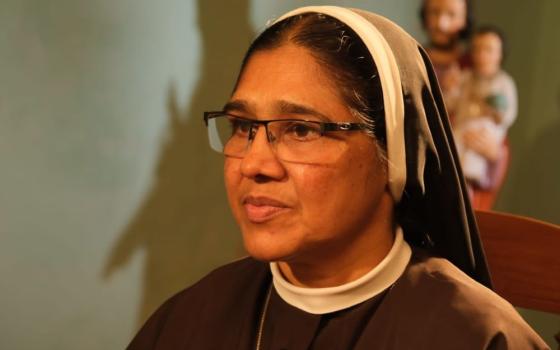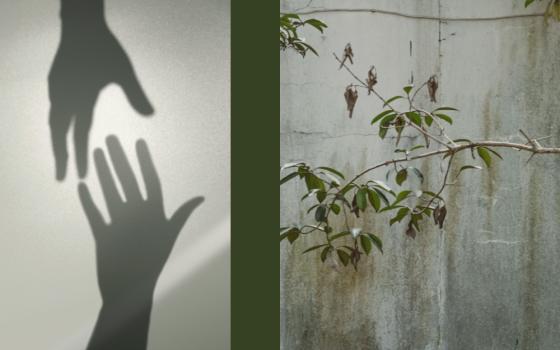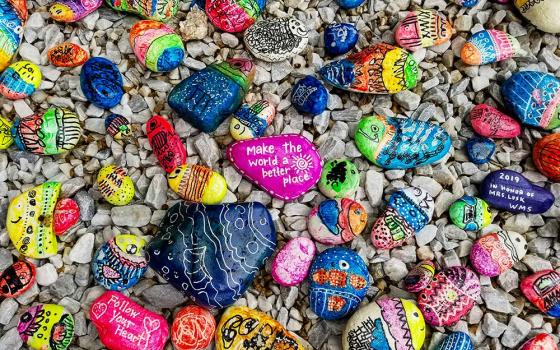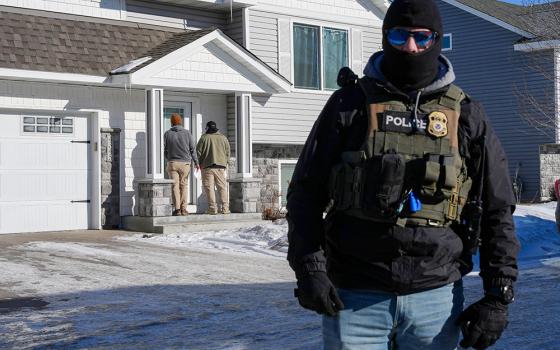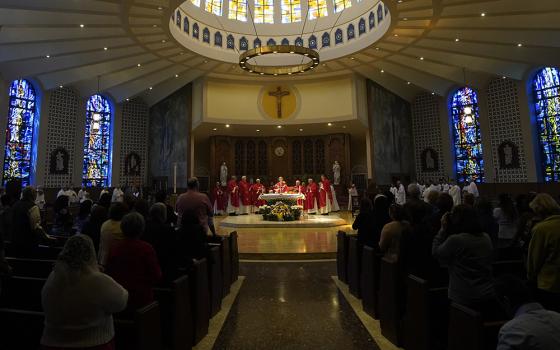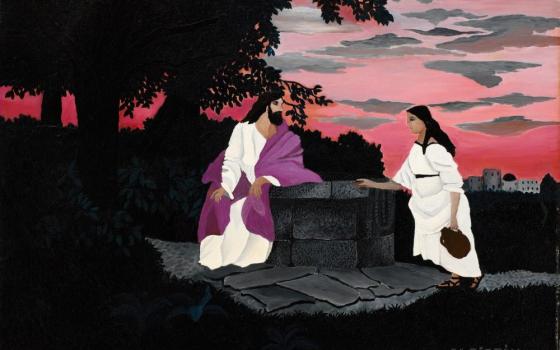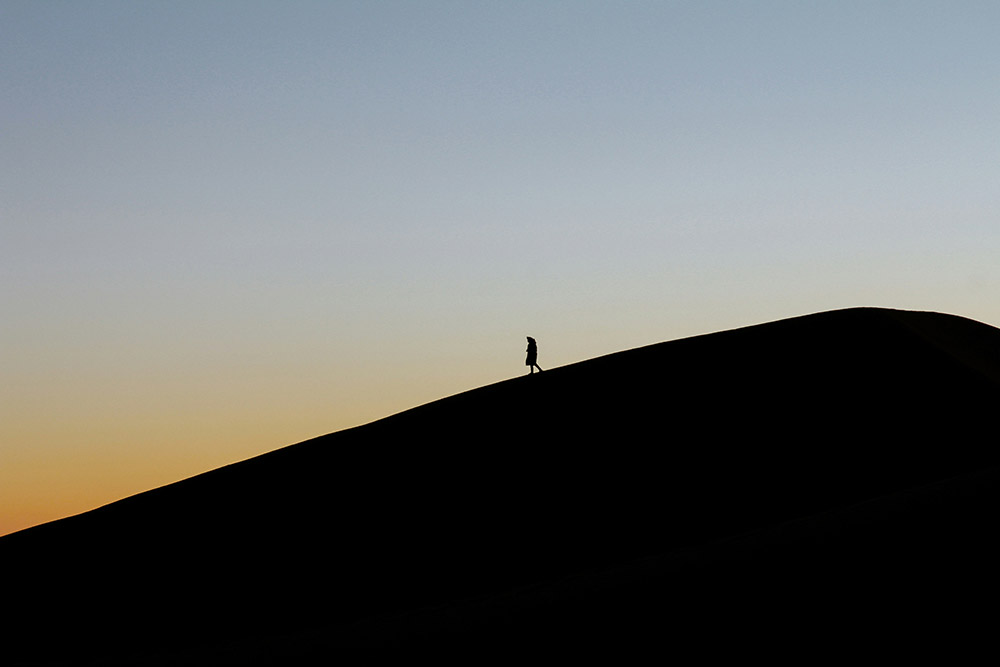
(Unsplash/Drew Murphy)
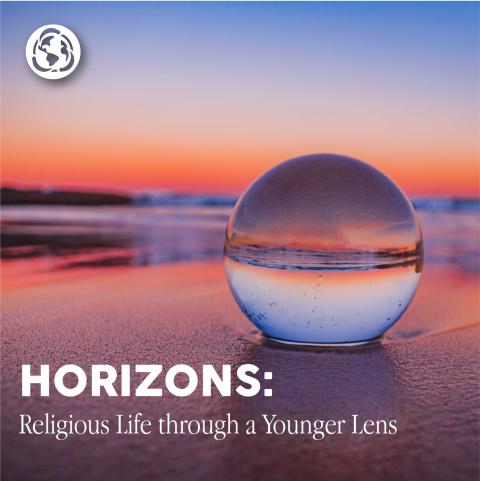
The year 2025 is a triple jubilee year for me: the silver jubilee of my religious vows, my parents' golden wedding jubilee and the biblical Jubilee.
Biblically, a jubilee is a special year mentioned in Leviticus 25:8, occurring every 50th year. It was a time to celebrate the mercies of God — forgoing debt, forgiving grievances, letting the fields be vacant, not burdening animals and even forgiving oneself. I began celebrating my jubilee by counting God's mercies.
In her article "Hope is dancing when you can't hear the music," Benedictine Sr. Joan Chittister writes, "Hope is the dream whose time has come, whose dance is already real — even if some of us cannot hear the music."
I heard the music in my father's suffering — a hope against hope. In 2012, my father started experiencing lower limb weakness and pain, for which only local treatment was given. Gradually with the increasing pains, he was diagnosed with CIDP (chronic inflammatory demyelinating polyradiculoneuropathy) along with diabetes.
As an only daughter, I could not let my father fend for himself. I applied for canonical leave from Aug. 20, 2019, to Aug. 20, 2022. I had hoped to celebrate the silver jubilee of my first vows in December 2022, but my leave deducted three years from my vowed life. It was very painful to hear humiliating rumors from relatives who assumed I had left the congregation, while also dealing with my father's illness and repaying a huge loan I took for his medical treatment and hospitalization.
Advertisement
Those three years of leave felt like a personal Triduum. To avoid facing humiliation and the scorching eyes of the people in my village, I shifted my residence to my nurse friend's apartment, which was close to the hospital where I work. I felt so comfortable finding a space to be myself.
But a few months later, my friend was pressured by some ultra-Catholic women to ask me to leave the apartment. They told her it was dangerous to house nuns and priests. Fortunately, my hospital hostel residence worked for me despite its lack of privacy and uncomfortable living conditions.
With a heavy heart, I had to transition from institutional religious life to non-institutional consecrated religious life. While my companions celebrated the silver jubilee of their first vows, I had to let go of the fleshpots of Egypt and begin the pilgrim's jubilee journey — walking in hope to the promised land of nowhere.
As a nurse and daughter, my first act of kindness toward my dad was caring for him with compassion and working overtime to repay the loan. This act of kindness gave my mother hope that her daughter would take care of them — medically and financially.
Caring for my father through his debilitating illness was like a long Triduum. I found myself reliving Maundy Thursday, when Jesus washed the feet of his disciples, preparing them to serve humanity. My own "feet washing" brought my whole being home. I told myself that I am repaying what my father did for me when I was a child. Now it's my turn to serve him.
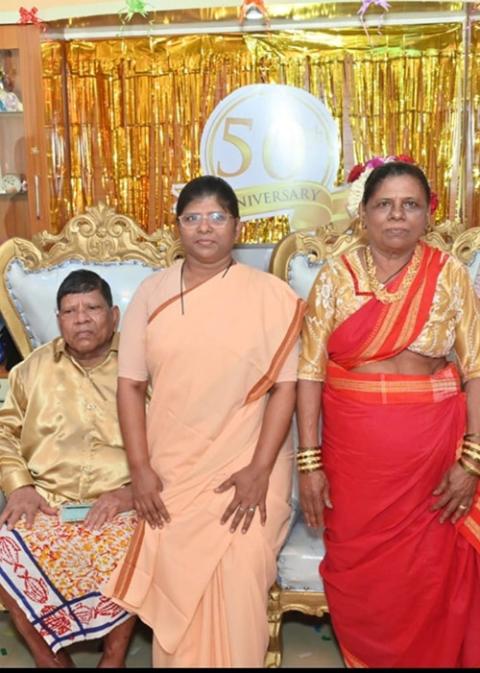
Sr. Rexilla Raymond with her parents on the occasion of their golden wedding anniversary on Feb. 26, 2025. (Courtesy of Rexilla Raymond)
Life embraces suffering. I received a new insight and began to see everything with a positive outlook. My fear of "What will people say?" turned into "People have the freedom to say what they want to say. I will go on living the message of Maundy Thursday, where love and charity are found, there am I."
This refrain perfectly set me on my pilgrim journey, guided by words I once found written on a bookmark:
If you are kind, people may accuse you of selfish ulterior motives. Be kind anyway. What you spent years building, someone could destroy overnight. Build anyway. The good you do today, people will often forget tomorrow. Do good anyway. Give the world the best you have, and it may never be enough. Give the world the best you've got anyway. You see in the final analysis it is between you and your God anyway.
While caring for my father, a deep conversion began in my heart. I realized we are all finite. Buddhism teaches us that "All beings suffer." This message brought me deep peace and renewed hope.
Though I never celebrated the silver jubilee of my first vows, I collected jewels of wisdom by reading books and watching formative videos that renewed my hope and courage to "give to the world the best you have, and the best will come back to you."
A Buddhist teacher, Joanna Macy, said that "when your heart breaks open, it can hold the whole universe." I experienced this in the Good Friday reading, "The curtain of the Jerusalem Temple … was torn in two from top to bottom when Jesus died (Mt 27:51)."
During these jubilee celebrations, I experienced many heartbreaks. Once, after a heavy night shift in the hospital, I came home to care for my dad. He noticed me dead tired; he asked me for some medicine to help him die. The word "euthanasia" pierced my body. To me, it felt like a merciless crucifixion. My whole being trembles whenever I hear the word — as it robs suffering of its sacredness.
The silence of my heart brought me to the celebration of Easter. Love and suffering mingled as I cared for my father and supported him financially, even through debt.
Eventually, father accepted his suffering, but that acceptance came at a high price — the loss of my membership in institutional religious life.
To begin the jubilee journey, I took Jesus as my forerunner, the one who said that the seed must die for the plant to bear fruit. I have come to realize that living a synodal religious life means living a nomadic life — ready to adapt at every turn, embracing both the ups and downs. Synodal solidarity has become my new mantra.
Going beyond the joy of Easter, I feel drawn toward the cruciform nature of the universe — where the God of compassion permeates all beings, especially amid our human weakness.

